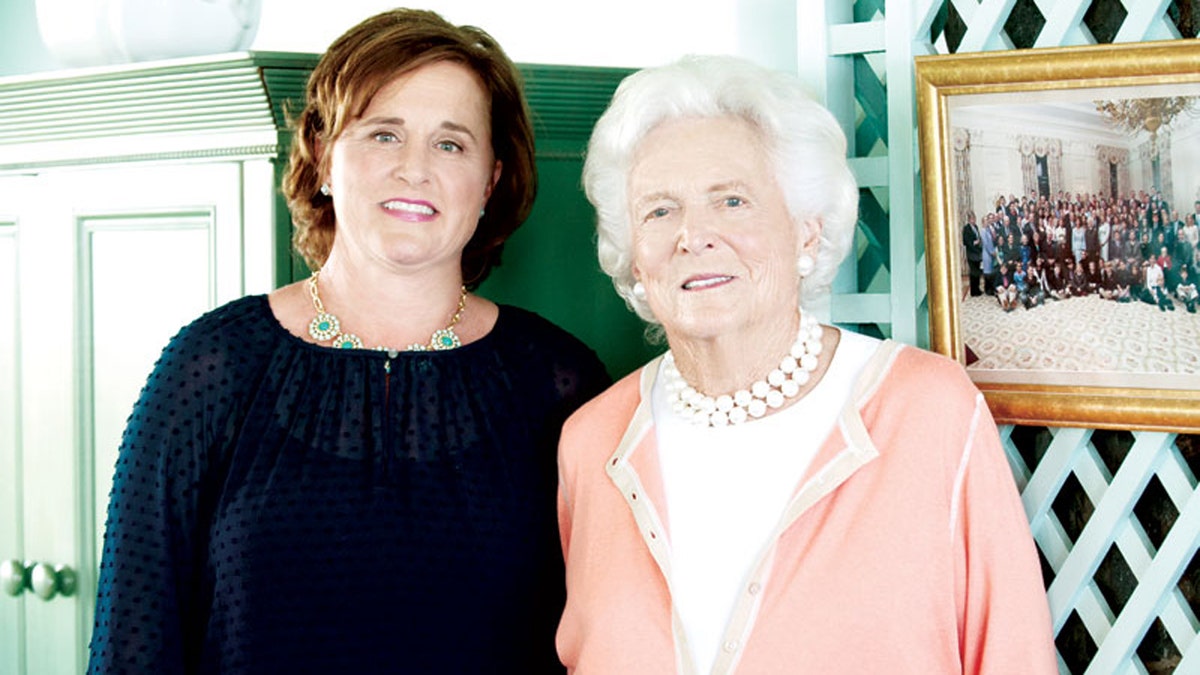
Graduation is an inspirational time of year when proud families celebrate education milestones and the beginnings of productive lives.
I remember a commencement speech that my mom, former First Lady Barbara Bush, delivered at Wellesley College in 1990. She retold a story by Robert Fulghum about a young pastor, who finding himself in charge of some very energetic children, hits upon the game called Giants, Wizards, and Dwarfs. "You have to decide now," the pastor instructed the children, "which you are -- a giant, a wizard, or a dwarf?" At that, a small girl tugging at his pants leg, asked, "But where do the mermaids stand?" And the pastor tells her there are no mermaids. And she says, "Oh yes there are. I am a mermaid."
Know thyself. Remain steadfast. Follow your dreams. These are great directives and perfectly fitting for graduates. But reality is that achieving dreams takes a solid education, education that remains elusive for too many Americans.
Access to a quality education in our country is a civil right for all Americans young and old. But to ensure it for scores of our fellow Americans, we must rethink education. Millions of adults in need of literacy skills and better education are workers, parents, speakers of languages other than English who don’t fit the traditional mold of the American student.
Millions of adults in need of literacy skills and better education are workers, parents, speakers of languages other than English who don’t fit the traditional mold of the American student.
Thirty-four million Americans [LS1] have never graduated from high school. Only 2 million of these adults in need are served by existing adult literacy programs in the U.S. These programs are generally place-based programs that provide direct, in-person services in a classroom, in small groups, or in one-on-one settings. These programs are relatively small in size and scope, are not accessible to all, and are unable to scale to meet the high level of need.
Low-literate adults have difficulty reading a child a bedtime story or over the counter medicine labels, completing a job application, opening a bank account, navigating healthcare forms, tax forms and more. More importantly, the legacy of low-literacy continues through generations, limiting opportunities and trapping whole families in a cycle of poverty.
This is why the Barbara Bush Foundation for Family Literacy is embarking upon new paths to discover ways to meet the educational needs of adults – through technology, governance, innovative funding and workforce development. We are proud to join with partners nationally in pushing this agenda forward.
On June 8 in Washington, D.C., we will convene our first symposium on adult literacy, and along with the XPRIZE Foundation will “imagineer” with more than 100 participants new paths to education for adults. Among our presenters will be Jeffrey Liebman, Malcolm Wiener Professor of Public Policy, at Harvard, who will discuss the organization’s social impact bond investing in literacy. Former Governor John Engler, President of Business Roundtable, will lead a discussion on dovetailing GED instruction with industry credentialing instruction. Jeanne Allen from Center for Education Reform will help us explore expansion of adult charter schools – those for students over 18 who have aged out of traditional high school.
All of the above augments our foundation’s first project to seed the marketplace with new tools. The Adult Literacy XPRIZE is a $7 million competition in which 109 teams from 15 countries today are developing phone apps that will enable low-literate adults to learn to read.
As my mom shared in that Wellesley commencement speech so long ago, Fulghum wrote: "Where do the mermaids stand? All of those who are different, those who do not fit the boxes and the pigeonholes? Answer that question and you can build a school, a nation, or a whole world."
Together we can do just that.








































